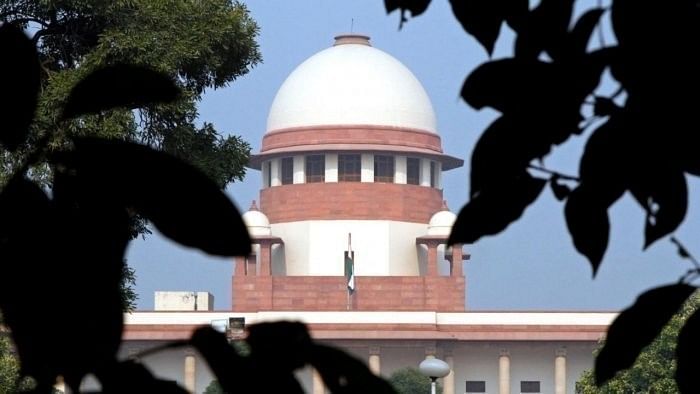
The Supreme Court of India.
Credit: PTI File Photo
New Delhi: The Supreme Court has acquitted a man and his wife in a case of dowry death of their daughter-in-law in 2007 after finding the necessary ingredients of the offence, including existence of demand, was not proved beyond the reasonable doubt in the case.
A bench of Justices J B Pardiwala and Manoj Misra emphasised that the presumption under Section 113-B of the Evidence Act would not be available to the prosecution, once all the necessary ingredients of dowry death have not been proved beyond reasonable doubt.
In its judgment on September 20, the court allowed an appeal filed by Shoor Singh and his wife with regard to death of their daughter in law by burn injuries on January 17, 2007 within days of birth of a male child at her matrimonial home in Pauri Garhwal.
The Uttarakhand High Court here had reduced their sentence from 10 to seven years imprisonment after upholding their conviction under Sections 304B (dowry death) and 498 A (cruelty for dowry demand) of the IPC. The appellants' son Jitendra Singh had already served out the seven years of sentence.
Examining their appeal, the bench noted as per facts of the case, when the parents of the deceased were asked whether they took up the issue of motorcycle and cash demand with the accused, their reply was that they did not, because they took it as a joke.
"We fail to understand how parents could treat their daughter’s multiple reporting of apprehension to her life, on account of demand being not met, as a joke. This creates a serious doubt about the truthfulness of the allegation more so when there is no allegation that any such demand was ever raised either before or at the time of marriage," the bench said.
The bench also felt this doubt gets fortified by change in stance of the father of the deceased from what was taken in the FIR.
The court pointed out notably, in the FIR it was alleged that the accused appellants including their elder son, and his wife, had directly raised demand for a motorcycle and cash. This allegation was not supported by the deposition of the parents of the deceased while admitting that appellant’s elder son was a doctor serving in another district.
"Thus, there appears to be a knee-jerk reaction to the unnatural death of their daughter to make out a case of dowry death. Besides that, no independent witness of the vicinity was examined. In our considered view, therefore, one of the essential ingredients of dowry death, namely, any demand for dowry, was not proved beyond reasonable doubt," the bench said.
The court found no worthwhile evidence to show that except for the burn injuries, which could be self- inflicted, the accused suffered any other antemortem injury in the case. Here, the presence of the accused in the house at the time of occurrence was also not proved.
The death was thus most probably suicidal though this would not make a difference for commission of an offence punishable under Section 304-B IPC if all the other ingredients of dowry death stand proved, the bench said.
"But, here harassment/ cruelty at the instance of the appellants in connection with any demand for dowry has not been proved beyond reasonable doubt," it said.
The court also noted that husband of the deceased was in service and stayed away from her.
It also found a statment was made by the accused that the deceased used to remain depressed for being unable to join her husband at the place of his posting due to lack of residential quarter. That apart, a photograph of the deceased, showing her alone with a male stranger had surfaced, which had shamed her.
"Be that as it may, once all the necessary ingredients of dowry death have not been proved beyond reasonable doubt, the presumption under Section 113-B of the Evidence Act would not be available to the prosecution. Hence, in our considered view, the appellants are entitled to be acquitted of the charge of offences punishable under Section 304-B and 498-A IPC," the bench said.
